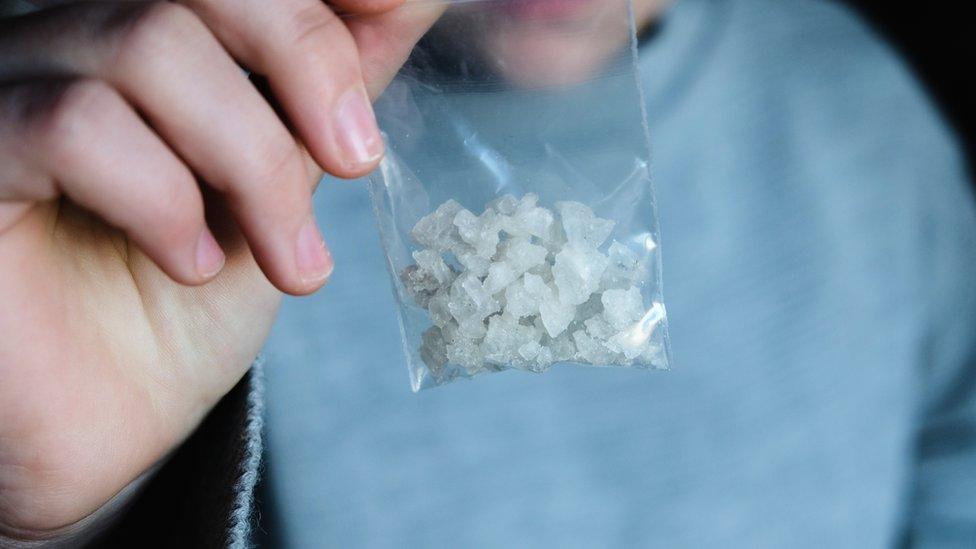The mums who took cocaine during play dates
- Published
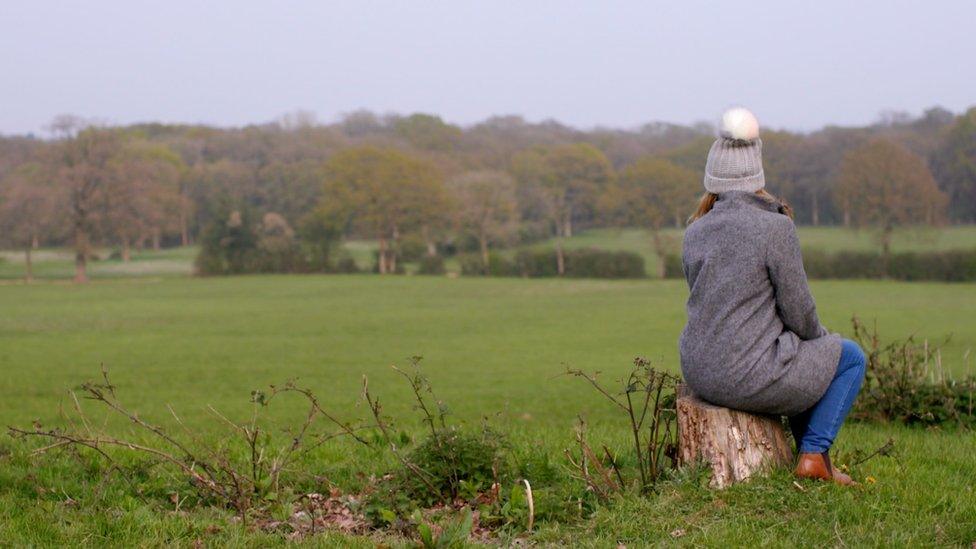
At first, Jane used cocaine twice a week with friends
Cocaine use in England and Wales is at a 10-year high, with middle-class users accused of fuelling the drugs trade. The Victoria Derbyshire programme met two mothers who described how their addiction affected their lives.
"I would go around to friends' houses who were single mums," says "Suzie".
"I'd have my baby in the carrier on the floor and I'd be sneaking up to the toilet to do a line. Or we'd be doing it on the kitchen side."
Suzie had issues with cocaine addiction at university, but it spiralled when she felt out of her depth as a lonely new mother.
Tired of living a secret life as an addict, the businesswoman decided to have another child believing pregnancy would force her to stop. But it didn't work.
"I met up with my friend the evening before my 20-week scan and she was with a guy at the time who was a dealer, in effect.
"He held my hand out and he put a rock of cocaine in my hand, and I was absolutely powerless to not do it.
"I can remember the next day - when I was getting my scan and this baby is going absolutely nuts in my belly - just thinking to myself, 'I've done that to you".
'Lovely house'
One of the UK's leading providers of private addiction treatment says it has seen a 128% increase in the number of cocaine addicts since 2015.
Last year, UK Addiction Treatment (Ukat) treated 504 powder cocaine addicts, up from 221 four years ago. Meanwhile, NHS mental health admissions related to cocaine use have trebled in the last 10 years.
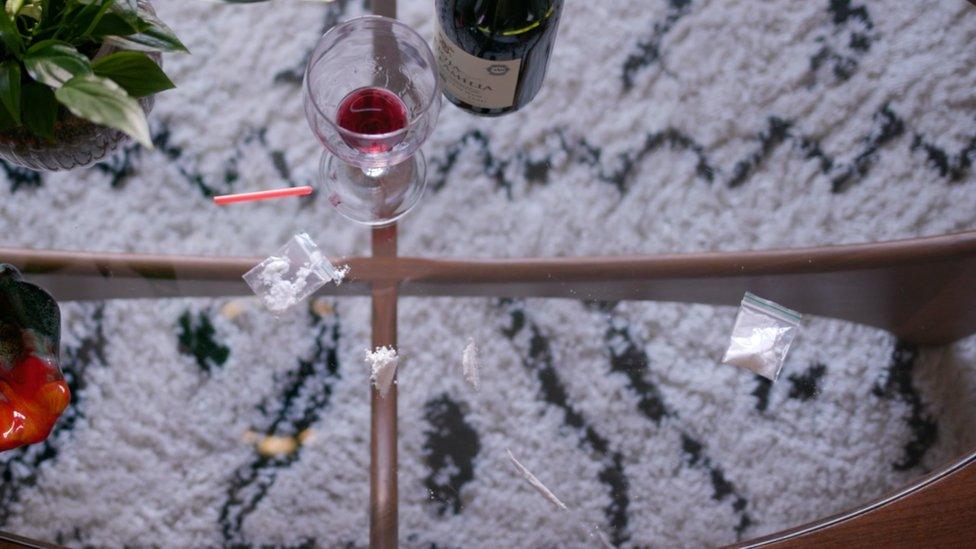
"Jane," who became addicted to cocaine when she became a mother, says: "We had a lovely car, and house, mortgage, and three really well-brought up children."
She and other school parents would arrange play dates during which they would use cocaine, twice a week.
When she split up from her husband and had access to more money following their separation, her drug use took a more serious turn.
"Before I know it, I'm bringing men home, using in the bedroom and sneaking them out, with my son asleep next door," she says.
"Then six o'clock in the morning would come and I would be like, 'Oh my god, I've done it again'... the alarm going off, having to get my son to school.
"Quite often, he would not go."
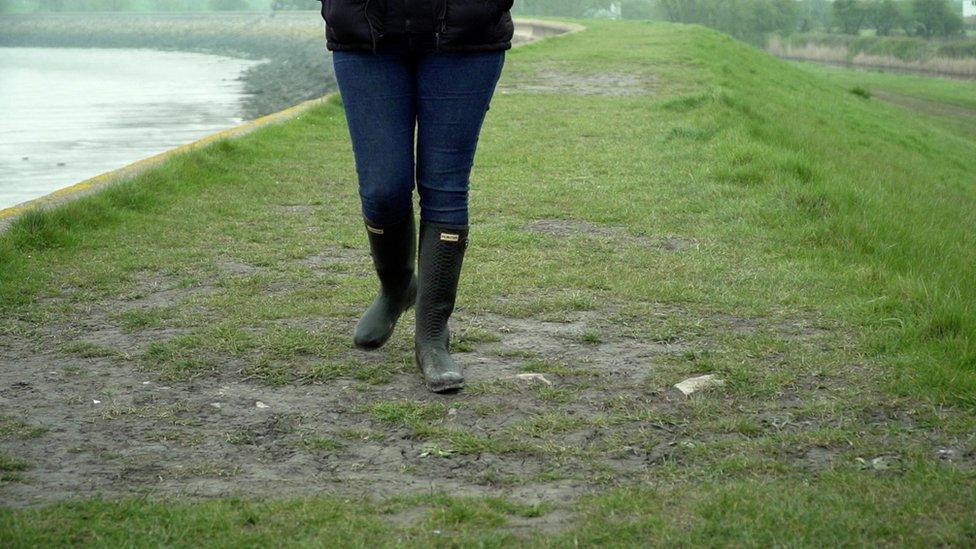
Suzie eventually went into a private rehab centre
For Suzie, life finally hit rock bottom.
"I got several grams of pure cocaine and a couple of bottles of wine," she says.
"I came home and basically shut myself in my bedroom and used the whole evening."
The next morning she had a fit.
"I had these paramedics in my bedroom and I can remember just sobbing my eyes out, saying, 'I want to die. Please just let me die'."
She says she repeatedly tried to stop using, finally attending a private rehab centre.
"I just threw myself into recovery," she says. "I slowly, slowly got better."
"All those years I'd just been a burden to my family, now I was finally able to make a dent on repaying some of that."
'I would've died'
Jane managed to quit with an addiction support group, influenced by witnessing the change being clean had on others.
"They all had bright smiling faces. There were mums talking about how they're present for their kids, and I was like, 'I want that'."
It came just in time - she says she realised she had not been looking after her children or home properly.
"I think if I hadn't have stopped, my kids would've been taken away, or I would've died," she says.
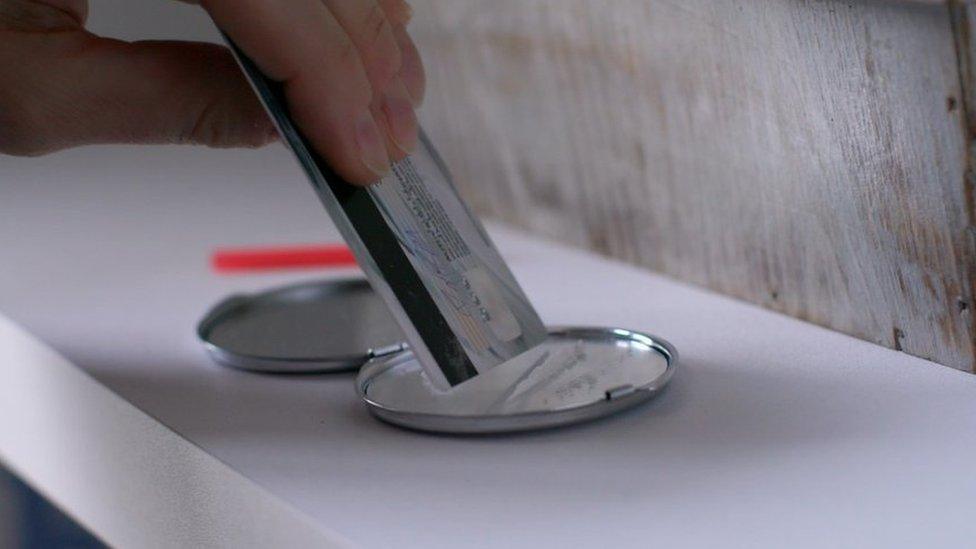
The Met Police commissioner has called middle-class drug users hypocritical
Ukat chief executive Eytan Alexander said cocaine was associated with having a good time, but in reality had the opposite effect.
"It ruins lives, tears families and friends apart and for some, is a gateway to even more potent substances like crack and heroin," he said.
"The perception of cocaine needs to change, and fast, to prevent this country from spiralling into a cocaine addiction crisis."
Last year, Metropolitan Police Commissioner Cressida Dick criticised "hypocritical" middle-class cocaine users who cared about fair trade and organic food, but who, she said, were fuelling the drug trade - which in turn has been linked to child exploitation and trafficking.
Home Secretary Sajid Javid agreed, saying such individuals "may never set foot in a deprived area, may never see an act of serious violence" but were "adding fuel to the fire" of rising knife crime on UK streets.
'I just didn't care'
Jane is sceptical that such warnings would have made her stop using.
"I've got some friends that used it very cautiously and felt guilty about it, but all of my guards just went and I just didn't care."
Suzie agrees, saying she was "very aware" of the repercussions of her cocaine use, but that - when heavily addicted to the drug - she would not have been swayed.
She does, however, hope the message gets through to casual users.
"A bit of education around where this stuff actually comes from might make them think twice," she says.
For information and support, visit the BBC's Action Line website.

Follow the BBC's Victoria Derbyshire programme on Facebook, external and Twitter, external - and see more of our stories here.
- Published3 August 2018

- Published25 March 2019
